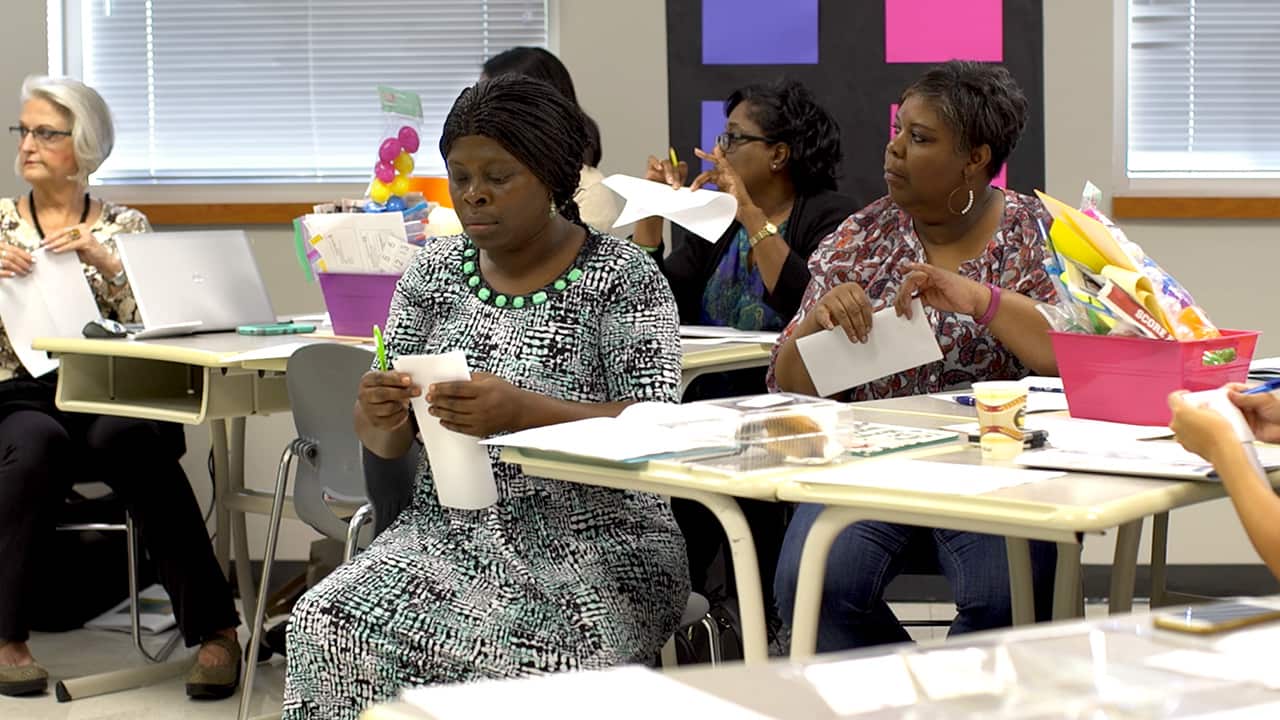- Professional development
- Continuing education
- Seminars
- Workshops
- In-service
- Training
- Educational conferences, etc.
Planned professional development (PD) has many “hidden” advantages that we don’t always think about, especially in school districts whose staff relate to these opportunities mainly in terms of education and learning. Tap into these hidden benefits the next time you are planning professional development and show participants that they are a not only a valued employee but help them alleviate feelings of isolation, build communication and interpersonal skills, develop peer-to-peer, real-world learning and even reinvigorate their passion for teaching.
How do you show your teachers that they are a valued employee?
Richard Branson’s philosophy is that employers should “Train people well enough so they can leave, but treat them well enough so they don’t want to.” This statement is more about employee value than it is about learning. Professional development trains teachers so they have choices about where they work, but also creates an environment where they want to stay. Teachers feel valued when they believe that their employers are investing in their growth. Planned opportunities to learn and grow are that investment. Enable teachers to feel their value by providing a conduit for this growth through professional development.
How do you alleviate silos in your school?
Teaching shouldn’t be a solitary experience, yet many teachers, especially those new to the profession, experience intense loneliness at work. Professional development brings colleagues together in an environment where they can connect on a deeper, personal level. Meeting with members of the same department allows the sharing of similar experiences through stories and shared conditions. Putting people from different departments together allows problem-solving and in-depth discussions from different perspectives. These interactions clearly demonstrate that we share more commonalities than differences, breaking down the walls of isolation that sometimes come from spending all day without adult contact.
How well do teachers communicate and develop interpersonal skills with their students?
Communication and interpersonal skills are an inherent component of professional development. For the learner, the professional development day requires listening effectively, asking relevant questions, negotiating and sharing ideas. The presenter models these skills by conveying clear, organized ideas, building trust, asking relevant questions to ascertain needs, and encouraging audience participation. Although not immediately apparent, teachers are practicing and honing communication and interpersonal skills during professional development that they will bring back to their classrooms.
How often do teachers get to learn from each other?
When I was teaching, my school took immense pride in their classroom observation program. As part of this peer-to-peer learning program, teachers were able to get substitutes so they could sit in on another teacher’s lesson. I learned more about teaching in these sessions than in 4 years of “teacher” college. Although this form of learning from colleagues through observation is not always practical in districts, the concept is still valuable. A well-designed professional development day should provide the platform for teachers to share and learn from one another.
How do you avoid teacher burnout?
Teaching is not a profession, it’s a passion. Ask any teacher. But this passion is easily forgotten amid high-stakes testing, differentiated instruction, standards-based curriculum requirements, performance evaluations, and changing state and federal mandates. Professional development can be the catalyst that reignites a teacher’s original passion by offering tips and tricks to inspire students or by simply showing them clever ways to make their teaching lives easier. Sometimes, all it takes is spending quality time away from their classrooms, sharing stories with their peers, to remind them of why they started teaching in the first place.
Professional development can be so much more than learning new skills. Taking advantage of all the benefits of PD ensures the retention of high-quality teachers by promoting employee value, removing feelings of isolation, building communication and interpersonal skills, letting teachers learn from one another and fueling the passion that is teaching.



